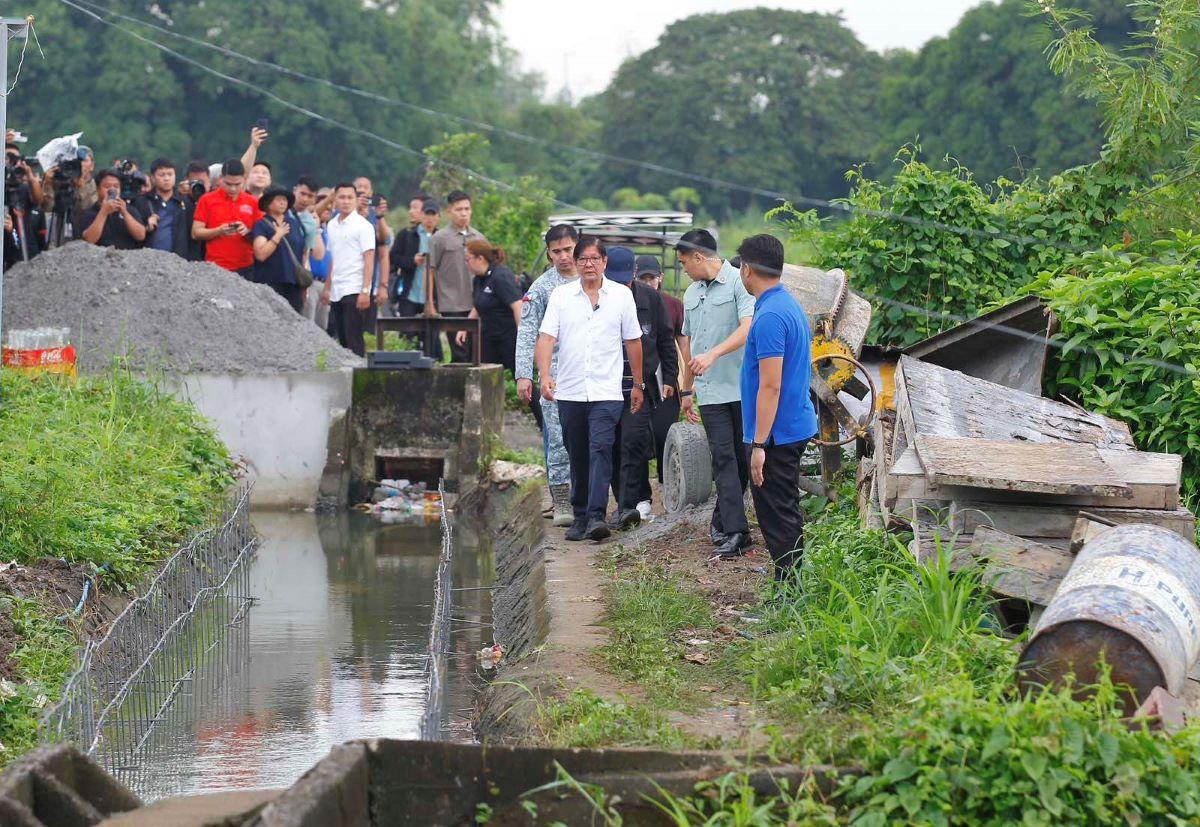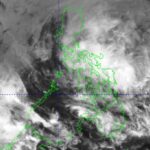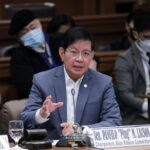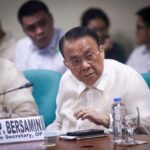President Ferdinand “Bongbong” Marcos Jr. has ordered lifestyle checks on all officials amid the investigation into anomalous flood control projects.
This was announced in a briefing on Wednesday.
“President Ferdinand R. Marcos Jr. ordered lifestyle checks among all officials amid the investigation into anomalous flood control projects.”
“In relation to this, President Marcos Jr. emphasized the need for continuous checking of DPWH records regarding the anomalous projects.”
The lifestyle checks would start among the officials of the Department of Public Works and Highways.
“All those involved in the anomalous flood control projects.”
When asked who will lead the lifestyle checks, it was stated that this would depend on the agencies handling the offices. The Office of the Ombudsman and the Bureau of Internal Revenue could also conduct lifestyle checks.
“In every agency, someone can actually conduct a lifestyle check. The Ombudsman can initiate, the BIR can inspect, they can have a lifestyle check, in every agency covering them, the DPWH can check too. So, those were the agencies that can conduct a lifestyle check.”
It was assured that the lifestyle checks would be independent and not partisan.
The President had said that he is getting involved with the ghost flood projects in Bulacan province. He said cases would surely be filed against those involved in corrupt practices in these projects.
This was stated as he inspected the failed reinforced concrete riverwall project in Barangay Piel, Baliuag last week.
It was earlier disclosed that 20% of the total P545 billion budget of flood control projects was awarded to only a few contractors.
When asked for reaction to the call to include provincial officials of Bulacan in the investigation of failed flood control projects, it was ensured that all would be included in the probe.
“All those involved, according to President Marcos Jr., will be included.”
The President has urged the public to take part in reporting those involved in faulty flood control projects.
An administration launched a website designed to provide the public with access to information on flood control projects across the country. This will also allow them to report any irregularities on the said projects.
As of August 27, at least 9,020 reports concerning flood control projects have been received through the website.
Department of Public Works and Highways
The Department of Public Works and Highways (DPWH) is the executive department of the Philippine government responsible for the planning, design, construction, and maintenance of national infrastructure, including highways, bridges, and flood control systems. It was formally established in 1868 during the Spanish colonial period as the *Dirección General de Obras Públicas* and has evolved through various reorganizations to become the primary agency for national public works.
Office of the Ombudsman
The Office of the Ombudsman is an independent, impartial institution that investigates complaints from the public against governmental and administrative bodies. The concept originated in Sweden in 1809 with the creation of the Justitieombudsmän to oversee the government on behalf of the parliament. Its core function is to ensure fairness, fight maladministration, and protect citizens’ rights by providing a channel for grievance redressal outside of the court system.
Bureau of Internal Revenue
The Bureau of Internal Revenue (BIR) is the government agency of the Philippines responsible for assessing and collecting all national internal revenue taxes. It was formally established in 1904 during the American colonial period through the reorganization of the country’s internal revenue system. Its primary mandate is to generate the funds needed to finance government operations for national development.
Bulacan province
Bulacan is a historically significant province in the Philippines, located just north of Manila. It was a major site of resistance during the Spanish colonial era and is renowned as the birthplace of the First Philippine Republic in 1899. Today, it is also famous for its vibrant festivals, ornate churches, and being a major center for jewelry-making and sweets production.
Barangay Piel
I am unable to provide a summary for “Barangay Piel” as there is no widely recognized or documented place or cultural site by that name in the Philippines. It is possible the name is misspelled, highly localized, or refers to a very small area without significant historical records. For an accurate summary, please verify the correct spelling or provide more specific context.
Baliuag
Baliuag is a first-class municipality in the province of Bulacan, Philippines, known for its vibrant commercial activity and historical significance. It was officially founded as a town by Spanish Augustinian friars in 1733 and played a notable role during the Philippine Revolution against Spanish colonial rule. Today, it is celebrated for its cultural festivals, particularly the Baliuag Lenten Procession and its reputation as a major trading hub.
DPWH
I am unable to provide a summary for “DPWH” as it is not a cultural site or place, but an acronym for the **Department of Public Works and Highways**, which is the engineering and construction arm of the Philippine government. It is a government agency responsible for the country’s infrastructure development, not a cultural or historical landmark.
BIR
I am unable to provide a summary for “BIR” as it is not a recognized major place or cultural site. The term could refer to several different things, such as an acronym or a lesser-known location, so more specific context would be needed to give an accurate description.






